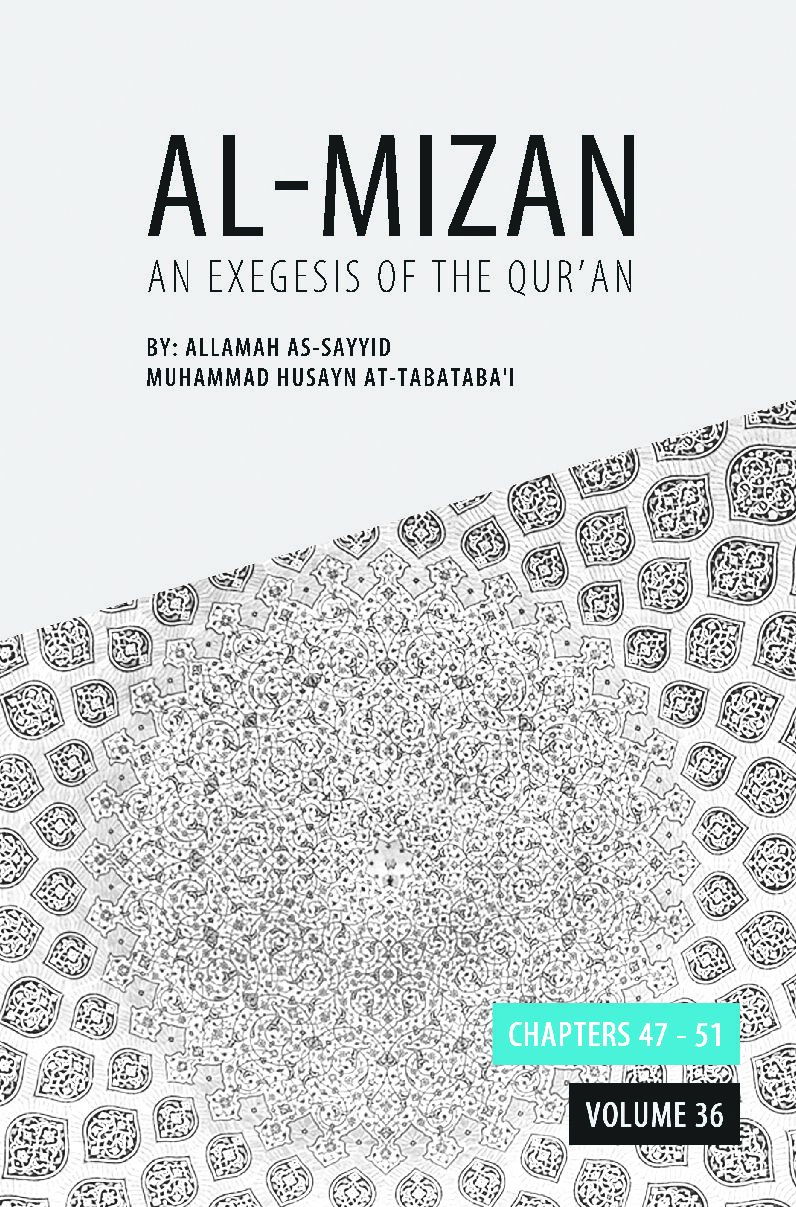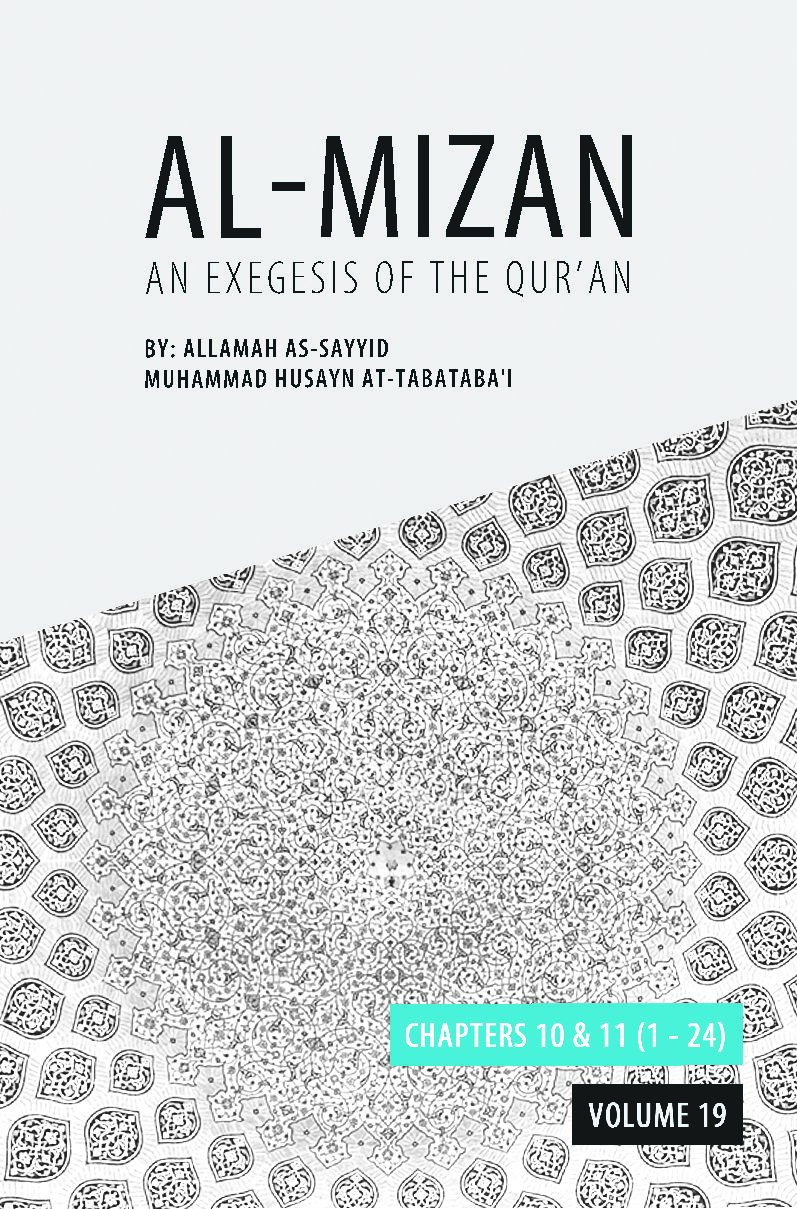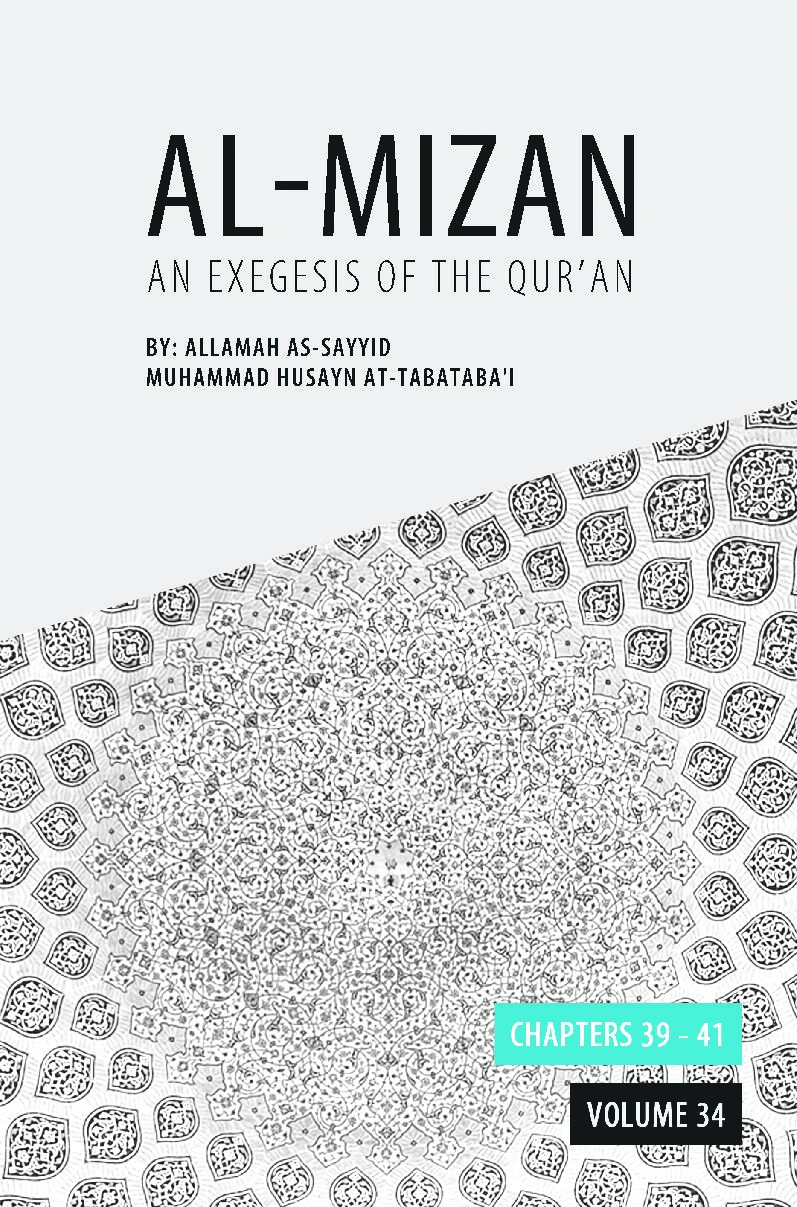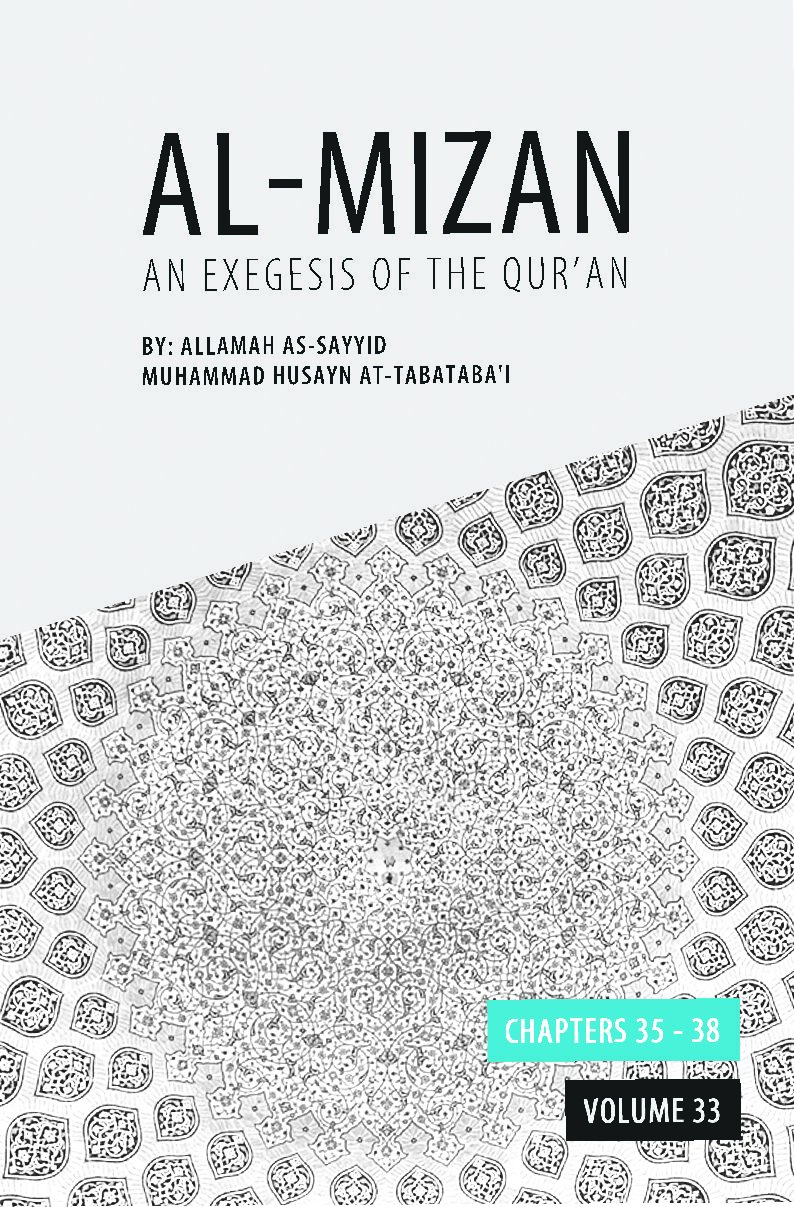This volume of Tafsīr al-Mīzān comprises of the tafsīr of five complete chapters, namely, Sūrah Muḥammad (47), Sūrah al-Fatḥ (48), Sūrah al-Ḥujarāt (49), Sūrah Qaf (50) and Sūrah al-Dhāriyāt (51). The first three sūrahs were revealed in Medina and the other two, in Mecca.
Sūrah Muḥammad (47) draws a beautiful comparison between the faithful and the faithless in their qualities and deeds in this life and the end result in the hereafter. The sūrah also discusses the condition of the hypocrites and those who disbelieve after believing. It concludes with a warning to the believers not to incline to the faithless and end up becoming like them. Otherwise, their works will fail. The admonishment comes as a mixture of encouragement and warning.
The verses of Sūrah al-Fatḥ (48) clearly relate and apply to the account of the Treaty of Ḥudaybiyyah which took place in the seventh year of the Hijrah. The main aim of this sūrah is to expound God’s favor upon His Messenger through the clear victory, and upon the faithful who accompanied him in the journey to Ḥudaybiyyah. The sūrah concludes by describing the Prophet and those with him with the description given for them in the Torah and Injīl and gives a beautiful promise of divine reward to those of them who are faithful and do righteous deeds.
Sūrah al-Ḥujarāt (49) discusses in detail, the aspects of Islam’s teachings that are essential for providing a happy life for the individual and supporting a good and virtuous social order. These teachings include the proper etiquette for a servant to observe with God and with His Messenger, how the human being interacts with others of his kind in the context of communal life; and those which relate to the superiority of individuals within that community, which is one of the most important aspects of how civil society is organized. The sūrah concludes by alluding to the essence of faith and submission.
Sūrah Qaf (50) talks about the prophetic mission and discusses the warning it contains of the Resurrection. The sūrah also calls attention to God’s knowledge and power by mentioning His governance, as demonstrated by His creation of the universe and the blessings of sustenance He provides for His servants. Next, it discusses the condition of the human being from the very beginning of his creation and his journey back to Him to receive judgment and reward according to his deeds. The main focus of the sūrah is Resurrection and one of its most profound verses read:
You were certainly oblivious of this. We have removed your veil from you, and so your sight is acute today.
Qur’an, 50:22
Finally, the main discussion in Sūrah al-Dhāriyāt (51) is about Resurrection or the Day of recompense. The discussion sometimes turns to arguments for the Resurrection for which God employs evidence for Divine Unity in the heavens, the earth, and souls, as well as the punishments God inflicted on previous nations after inviting them to believe in Divine Unity and their rejection of His messengers. One of its finest verses is:
I did not create the jinn and the humans except that they may worship Me.
Qur’an, 51:56





